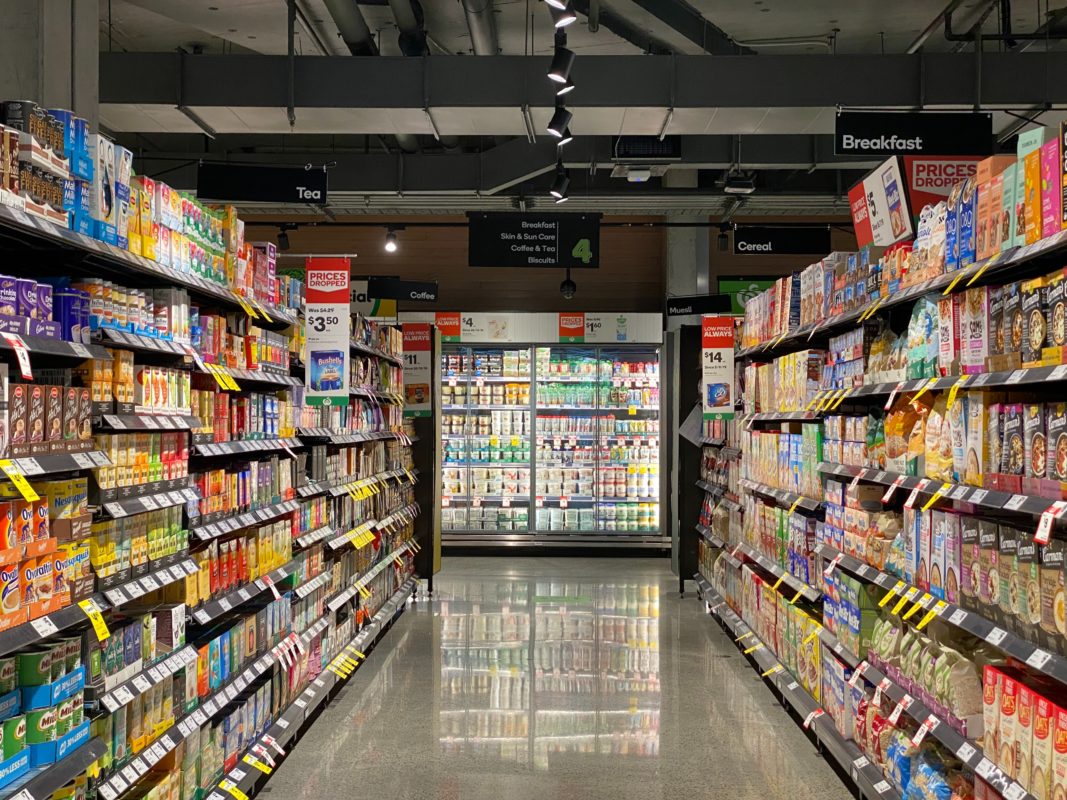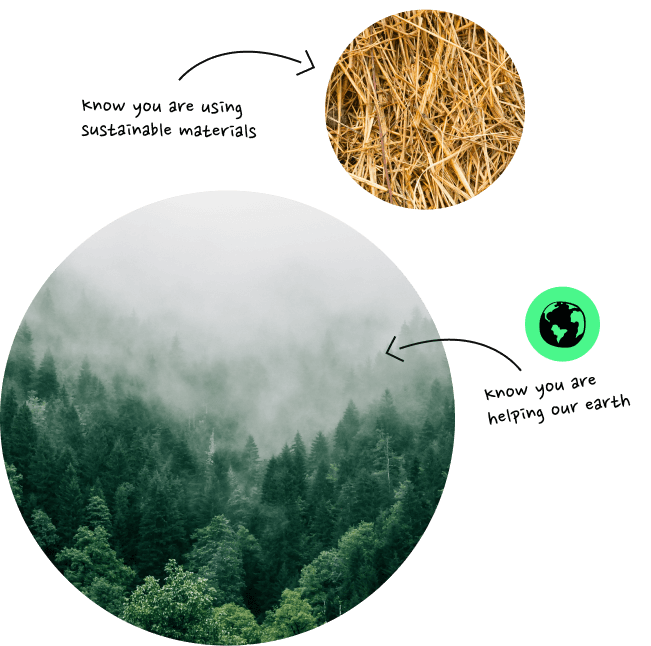In this very special series, we are sharing excerpts from Season 2 of the excellent Red to Green Podcast created by host and future food enthusiast Marina Schmidt. The show features in-depth conversations about the intersection of the food tech industry and sustainability. Season 2, titled ‘Plastic Alternatives’, is dedicated to the world of food packaging with a focus on exploring alternatives to fossil fuel plastic materials and solutions.
Do we have an impact as to what packaging is used?
The below conversation is an excerpt from Red To Green Season 2, Episode 1: Plastics, Toxicity, and Greenwashing, during which Marina Schmidt, founder of Red to Green Solutions talks to Nick Johnson, a PhD student in cellular agriculture scaffolding and president of the UC Davis Alt Protein Project, on the topic of sustainable packaging for food companies and the presence of plastic in our everyday lives.
Audio transcript by Descript, with edits by Anya Roschke.
Nick: Let’s move on to the personal packaging challenge.
Marina: So to give some context for the last month I’ve been doing a little personal packaging challenge. It’s nothing too fancy. It’s just being very aware of what packaging I’m buying and trying to make personal decisions on which kind of packaging I want to support because I think we vote with our money for the kind of world we want to live in. And interestingly me doing that has also helped quite a few of my friends to just become more aware of it.
Doing this packaging challenge made me realize how much of the plastic that we create is actually hidden. Anything that’s more processed tends to go hand in hand with more plastic along the supply chain and also likely more CO2 emissions.
“We vote with our money for the kind of world we want to live in.”
Marina Schmidt
Nick: What are some of the steps that you’ve taken in this personal packaging challenge and how has it changed the way you shop?
Marina: Interestingly, I think that was the best way to switch to a healthier diet because naturally eating more fruits and vegetables, which are non-packaged, ends up being the best thing you can do. I actually also stopped eating plant-based meat alternatives. Or dairy alternatives because I didn’t find anything that’s not packaged in plastic in that category. Still now, because I’m still keeping some of the habits from that month, I realized that it ends up being the best health booster because when I do things just for myself, like, “oh, I just want to eat healthily”. Then I always have the argument of yeah but like indulging yourself is also healthy, you know, for mental health. And then whoops, I ended up eating something, uh, processed when it comes to looking at environmental impact, I can’t wiggle out of that easily.
I think some things you just do for your own conscience, just as a part of what kind of human do I want to be? I had this discussion with an economist who to everything that I would argue about in value-based terms, he would say, well I don’t go voting because if you look at the statistics and the blah, blah, blah, then my vote doesn’t make a difference.
I’m like, well, then if you use that line of argument, then actually nothing you do ever makes a difference. It’s about what kind of personal footprint do you want to have? And Germans, for example, I looked that up, cause half a kilo of plastic waste each day.
Each day, imagine that this is horrendous and we’re a nation recycling a lot and we better be because we are horrible in terms of plastic packaging consumption and, yeah. America is also close to that.
How can our actions have a greater influence on others?
Nick: Yeah. And also, you kind of mentioned how just by doing this yourself, you’ve partially influenced some of your friends. And so part of it is kind of that increasing awareness about the issue and voting with your money of “I want to support X business because they’re following practices that I agree with.”
And then that bleeds over into some of your friends and acquaintances and they may ask you questions about it, and then you can spread what you’ve learned in that way.
“Part of it is kind of that increasing awareness about the issue and voting with your money
Nick Johnson
Marina: Yeah. A lot of the change that we are seeing now is based on consumer pushback When it comes to personal impact. I think the biggest impact we all have is if all of us who are in some way related to the podcast, make a bit of an effort to change the practices within our companies. That will be huge. So if you work at a company and look at the supply chain and you look where lots of waste is created and you make an effort to drive change, to move to good paper sources or to just remove all the plastic or to move to glass, et cetera.
Then your impact will be multiplied by all of the times this waste would have been created for an indefinite number of days, weeks, years, possibly. This is such leverage and such a personal power that everyone has…to drive change within their own organizations.
The Red to Green Podcast is available on iTunes, Spotify, and all popular podcast apps by typing in “Red to Green” in the search bar. Listen to this episode of Red to Green here.
Want more? Check out the whole Red To Green Talks series here.
Lead image courtesy of Franki Chamaki (Unsplash).






